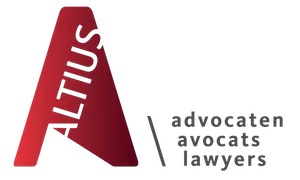A new era for workers in the cultural sector
2024's start has marked a decisive stage in the arts world. At the start of December 2023, the Commission du Travail des Arts/Arts Labour Commission (“Commission”) met for the first time at the Royal Flemish Theatre; this was vitally important for the sector's workers as it marked the start of a new era with the long-awaited issue of “arts work certificates” from 1 January 2024. This has been part of the reform of the status of artist.
This ambitious reform aims to guarantee better access to social protection for cultural players, while responding to their realities and diversity.
On 1 December 2022, the Law creating the Commission du travail des arts and improving social protection for artists1 (“the Act”) was adopted, and came into force on 1 January 2024. This reform complements the reform of unemployment regulations applying to arts workers, which has been in force since 1 October 2022.
The Commission: Inclusive representation of the cultural sector
Since 1 January 2024, the Commission has been set up within the FPS Social Security and has replaced the Commission Artiste. The Commission's composition reflects a desire for greater inclusion and representation of the sector's participants. With half of its members coming directly from the sector, the Commission aims to take better account of the needs and specific features of the field, while ensuring a balanced approach to the issuing of certificates.
Why a certificate of artistic achievement?
The new arts employment certificate, or attestation du travail des arts, is not compulsory. However, it does confer employee status when all the elements necessary for the existence of a salaried employment contract cannot be demonstrated.2
The certificate therefore provides better social protection for artists as it enables them to be covered by the social security system for salaried workers. They can now devote more time to their artistic activities, since administrative tasks are made easier. These tasks had become far too complex and time-consuming.
Under what conditions?
The Commission issues the certificate, and artists must demonstrate to the Commission that they are genuinely engaged in a professional artistic activity that enables them to cover at least part of their subsistence. In this respect, the Commission is likely to take account – subject to proof – of the artist's peripheral activities, such as running training courses or even behind-the-scenes work such as promoting artistic work, developing artistic projects, conceptual or production work, etc.
Finally, the applicant must demonstrate that his or her artistic activities have generated a sufficient amount of income and required a sufficient investment of time over the five years preceding the application. In this case, professional practice as an employee is presumed.
The Act also provides for the introduction of a new digital platform, “Working in the Arts”, where arts workers can apply for certificates.
Extension of the certificate: Recognition of artistic support professions
Another important innovation in the reform is the extension of the certificate concerning technical and artistic support activities. This recognition of the essential role of professionals working in the shadow of artistic creation reflects an inclusive and holistic approach to work in the cultural sector. It also recognises the diversity of professions that contribute to the development of the artistic scene.
So, this certificate concerning support activities is aimed at all arts professionals who make a necessary contribution to their field. Some examples include: picture or sound editors, sound technicians, casting directors, etc. Artistic, artistic-technical and artistic-support activities are all considered to be artistic activities.
Recognition of work intermittence: Valuing precariousness in the cultural sector
The reform also recognises intermittence and the invisibility of work in the cultural sector. By taking into account the precarious realities faced by artists and technicians alike, it marks a significant step forward in the recognition and enhancement of artistic work in all its forms. By taking into account the entire creative process, from the gestation of an idea to its realisation on stage, this reform demonstrates a desire to adapt to the realities on the ground and a desire for fair and equitable recognition of artistic work.
So-called “invisible” periods of work are now recognised as periods of work rather than unemployment. This includes the time an artist needs to write a book or prepare for an audition.
Uniform recognition: A major step forward for the profession
One of this reform's major advances is that the certificate will be used with all federal authorities. This measure guarantees the uniform recognition of the status of artist or arts worker, putting an end to the disparities and inconsistencies encountered in the administrative processing of applications. This provides greater legal certainty for beneficiaries and helps to strengthen the sector's professionalisation.
Are first-time artists the ‘forgotten ones'?
No. A beginner artist may receive a provisional arts work certificate with very reasonable access conditions for the first three years.
Amateur arts allowance
A flat-rate amateur arts allowance has also been introduced to replace the system of small allowances.
In practical terms, the granting of this allowance makes it possible to avoid undeclared work in the case of limited artistic activities. In fact, the allowances paid in this context are not considered as remuneration under certain conditions .
This arts allowance is tax-free. It is only subject to a reduced solidarity contribution.
Unemployment: Arts worker's allowance
The arts worker's allowance granted under the new unemployment regulations (“ATA”) is not only available to artists, but also to other workers in the cultural sector.
This new allowance is granted following two successive stages: first, the granting of an attestation du travailleur des arts “plus” or “débutant“, and, second, only then the application for the arts worker's allowance. The issuing of this attestation is the exclusive responsibility of the Commission set up within the SPF Sécurité Sociale (see above).
Arts workers are not subject to active availability checks while the ATA is in force. However, they must remain registered as jobseekers.
Challenges and questions: The need for ongoing assessment
Despite these advances, a number of concerns remain. The need to renew the attestation every five years raises legitimate questions, particularly about the assessment criteria and the consequences of failing it. Similarly, the very definition of what constitutes artistic work remains open to debate, highlighting the tensions between an inclusive approach and the need to maintain criteria for artistic quality and specificity.
Conclusion: Towards a fairer and more equitable future for workers in the cultural sector
In conclusion, the Commission is playing a crucial role in changing the status of artists and workers in the cultural sector. Despite the challenges and unresolved issues, this reform reflects a willingness to adapt to the realities on the ground and a desire for fair and equitable recognition of artistic work in all its forms.
Footnotes
1. The Law of 16 December 2022 creating the Commission du travail des arts and improving the social protection of workers in the arts, M.B., 27 December 2022.
2. It should be noted that artists may also carry out their activities on a self-employed basis. Self-employment does not have to be declared to the Commission.
The content of this article is intended to provide a general guide to the subject matter. Specialist advice should be sought about your specific circumstances.


